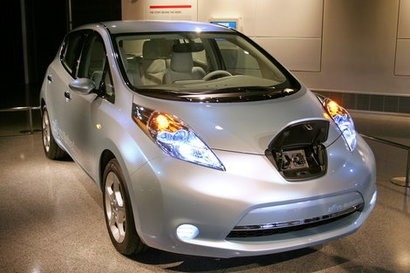
The event, held today (9th March), follows the findings of a new report which is also being launched at the event, showing how the drive for low-carbon road transport is, and will continue to be, good for motorists and good for the economy, jobs and growth, as well as being essential to protect against climate change. It was attended
The report, Fuelling Britain’s Future, has been published by Cambridge Econometrics and finds that by 2030 fuelling the average new low carbon car could be £600 cheaper than for the average car today. The national cost of running and replacing cars in the UK could be between £5-7 billion lower. The researchers have found that a continuing focus on cutting carbon from road transport could lead to carbon emissions from the UK car and van fleet being cut by 47 percent by 2030, and by as much as 80 percent in 2050.
It also finds that the gradual introduction of electric propulsion will reduce running costs even further than the cost reductions already being achieved through improvements in the efficiency of internal combustion engines, light construction materials and more efficient tyres.
The event will be attended by ministers and senior officials from DfT, DECC, BIS, Treasury and Defra as well as leading stakeholders from industry, academia and the environmental movement. Small and medium-sized British companies presenting at the event include Celtic Renewables which is commercialising the production of biobutanol as an advanced biofuel from the residues of the £4 billion Scottish malt whisky industry. GnewtCargo is showcasing its final mile delivery service in London which uses electric vehicles and advanced logistics to minimise emissions in the capital. Meteor Power is developing the first downsized low carbon, hybrid engine for use in high performance motorcycles and lightweight sports cars while Revolve Technologies is developing low carbon technology solutions for electric vehicles (EVs), hybrids and hydrogen appkications. Also present will be Teyya Motors which is developing the first commercially viable range-extended electric urban delivery truck.
“Innovators like these demonstrate the vitality of the automotive and fuels sector and highlight the prospects for future growth” said LowCVP Managing Director Andy Eastlake, speaking at the Parliamentary reception for the event. “The UK is, and needs to remain, the best place to invest in the innovative low carbon technologies of the future. We will continue to do all we can to ensure that every low carbon opportunity is explored and supported.”
Cambridge Econometrics’ report echoes the findings of the Low Carbon Vehicle Partnership (LowCVP) study published last year. Entitled Investing in the Low Carbon Journey, it found that the last ten years of a consistent policy focus on cutting carbon has helped to stimulate a renaissance in the automotive sector while improving fuel efficiency at the most rapid and sustained rate ever.
For additional information:

